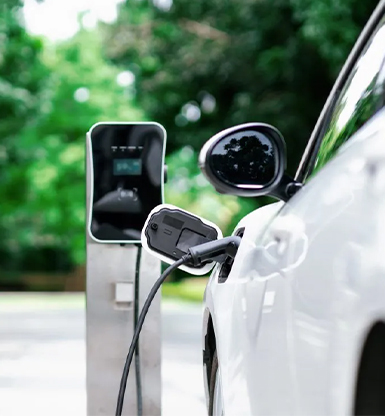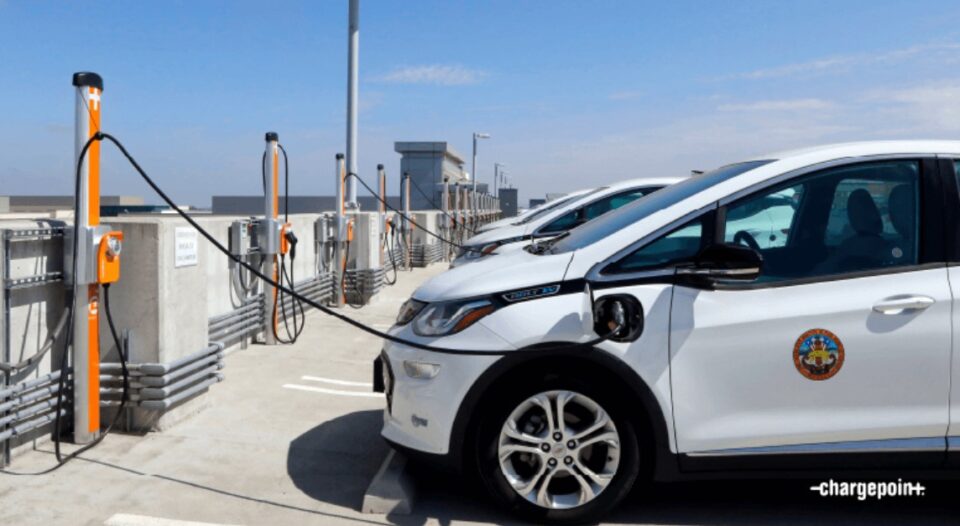Expert Opinions and Market Insights When You Buy EV Charging news
Wiki Article
New Developments in EV Charging: Just How the Industry Is Advancing to Meet Demand
As the electrical vehicle (EV) market remains to broaden, the charging framework is undertaking substantial improvements to deal with the surging need. Secret growths in ultra-fast charging innovations, combined with smart grid combination, are reshaping the landscape. In addition, developments in battery technology promise boosted effectiveness and sustainability. However, the quest of global charging criteria continues to be an essential consider enabling seamless customer experiences and widespread adoption. The ramifications of these improvements increase crucial concerns about the future of EV charging and its role in the more comprehensive power ecosystem.Growth of Billing Infrastructure
The fast expansion of electrical vehicle (EV) charging framework is an essential element in facilitating the widespread fostering of electrical movement. As governments, personal business, and consumers progressively recognize the importance of minimizing carbon emissions, financial investments accountable networks have actually surged. This framework development is crucial to ease array stress and anxiety, making certain that EV users have practical accessibility to billing stations.Substantial advancements in billing terminal modern technology and implementation methods have actually arised. Urban locations are seeing a spreading of public charging stations, while country areas are slowly being integrated into the charging network. Collaborations between vehicle suppliers and billing service providers are becoming more common, helping with the facility of comprehensive networks that improve user experience and accessibility.
On top of that, the integration of renewable resource sources into charging stations is getting momentum, advertising sustainability in the EV environment. This shift not just sustains environmental goals yet additionally lines up with the climbing need for environment-friendly power solutions among customers.
Ultra-Fast Charging Technologies
Ultra-fast charging modern technologies represent a significant leap forward in the EV billing landscape, enabling electrical automobiles to recharge in a fraction of the time compared to traditional billing techniques. These developments generally deliver power degrees surpassing 150 kW, with some systems rising to 350 kW or more, considerably reducing billing times to as low as 15-30 minutes for a considerable fee.Secret making it possible for innovations include improvements in battery chemistry, power electronic devices, and thermal monitoring systems. As an example, high-capacity batteries with boosted thermal stability enable faster billing without overheating. Furthermore, advancements accountable facilities, such as liquid-cooled cable televisions and modular charging terminals, help with reliable power transfer, boosting the total individual experience
Major automobile makers and technology firms are actively buying ultra-fast billing networks, recognizing the important duty they play in overcoming range anxiousness and speeding up the adoption of electrical vehicles. As these innovations end up being extra commonly offered, the EV market is anticipated to witness significant development, making electrical mobility an extra eye-catching option for customers. On the whole, ultra-fast charging technologies are pivotal fit the future of sustainable transportation, leading the way for an extra reliable and considerable charging ecological community.
Smart Grid Assimilation

Via need action strategies, wise grid systems can change charging schedules based on grid problems and electricity prices. During durations of high demand, billing can be delayed to off-peak hours, resulting in reduced prices for consumers and reduced strain on the grid. Furthermore, vehicle-to-grid (V2G) innovations enable EVs to discharge power back right into the grid, supplying secondary services and boosting grid security.
Combination with sustainable energy sources further improves the sustainability of EV billing. By aligning billing activities with periods of high solar or wind generation, clever grids advertise a greener billing facilities. Ultimately, wise grid combination not only supports the growing demand for EVs however additionally contributes to a much more lasting and durable power future, positioning the market for lasting success.
Battery Technologies
In the middle of the fast development of electric cars (EVs), battery technologies stand at the leading edge, driving improvements in effectiveness, sustainability, and efficiency. As the demand for EVs surges, scientists and makers are concentrating on enhancing battery innovations to address challenges such as array anxiety and charging times.Lithium-ion batteries remain one of the most widely utilized technology, yet new materials and chemistries are arising to enhance energy thickness and long life. Solid-state batteries, for example, assure higher power storage capability and improved safety and security by replacing liquid electrolytes with strong ones. This change might substantially decrease the threat of fire and increase the life expectancy of batteries.
Moreover, advancements in battery recycling procedures are essential for sustainability. Companies are developing approaches to recuperate important products like lithium, cobalt, and nickel from used batteries, promoting a circular economic situation and reducing environmental effect.

International Charging Specifications

Efforts are underway to develop worldwide billing requirements that promote compatibility amongst various EV designs and charging terminals. Organizations such as the International Electrotechnical Commission (IEC) and the Society of Automotive Engineers (SAE) are working collaboratively with auto suppliers and power providers to create detailed standards. EV Charging news. These standards purpose to improve the billing procedure, decrease the requirement for numerous adapters, and boost individual experience
Additionally, standardization can dramatically strengthen the development of the charging network, as it motivates investment by making infrastructure advancement much more predictable and efficient. As the EV market develops, a unified technique to billing standards will certainly be essential for making certain that customers can charge their lorries conveniently and dependably, consequently supporting the broader transition to sustainable transport.
Verdict
The electrical automobile billing industry is undertaking substantial transformation to address the surging demand for sustainable transport. Developments in charging facilities, ultra-fast technologies, clever grid integration, and innovative battery services are crucial in enhancing individual experience and operational performance. The quest of explanation worldwide billing criteria is vital for ensuring interoperability across different areas and systems. Jointly, these growths position the industry to support a broader adoption of electric cars, eventually contributing to an extra sustainable future.Urban locations are seeing a spreading of public charging stations, while rural regions are slowly being incorporated right into the charging network. Furthermore, developments in charging facilities, such as liquid-cooled cables and modular billing stations, facilitate efficient power transfer, enhancing the total customer experience.
In general, ultra-fast billing innovations are pivotal in forming the future of lasting transportation, leading the way for a much more considerable and effective billing environment. - EV Charging news
By straightening billing activities with periods of high solar or wind generation, smart grids promote a greener charging infrastructure.Efforts are underway to establish international charging requirements that assist in compatibility among numerous EV versions and charging terminals.
Report this wiki page